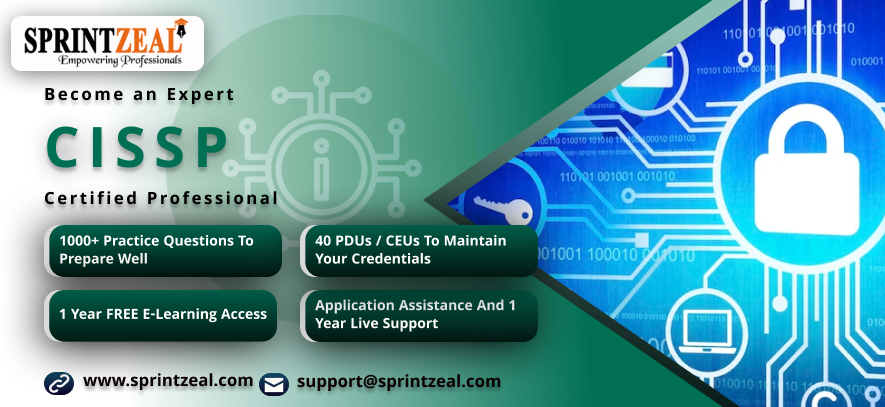Introduction
In today's digital age, cybersecurity has become a paramount concern for businesses and governments alike. The increasing frequency and sophistication of cyber-attacks have necessitated the need for highly skilled professionals to protect critical data and infrastructure. One of the most recognized and respected certifications in the field of cybersecurity is the Certified Information Systems Security Professional (CISSP) certification. This ultimate guide will walk you through the steps to becoming a systems security professional with a CISSP certification, exploring the importance of the certification, the prerequisites, the examination process, and the career opportunities it unlocks.
Why CISSP Certification?
The CISSP certification, offered by the International Information System Security Certification Consortium, or (ISC)², is globally recognized as a benchmark for excellence in cybersecurity. It is designed for experienced security practitioners, managers, and executives who are involved in designing, engineering, implementing, and managing their organization’s information security program. The CISSP certification demonstrates a high level of competence in eight domains of the (ISC)² CISSP Common Body of Knowledge (CBK).
Benefits of CISSP Certification
- Global Recognition: CISSP is recognized worldwide, enhancing your credibility and marketability in the cybersecurity field.
- High Earning Potential: CISSP-certified professionals often command higher salaries compared to their non-certified peers.
- Career Advancement: The certification opens up numerous opportunities for career advancement in various industries.
- Comprehensive Knowledge: The certification process ensures that you have a deep understanding of the fundamental concepts and principles of information security.
- Professional Network: Becoming a CISSP-certified professional allows you to join a network of over 140,000 members globally, providing opportunities for networking and professional development.
Prerequisites for CISSP Certification
Before you can sit for the CISSP exam, you must meet certain prerequisites:
-
Work Experience: You need at least five years of cumulative, paid work experience in two or more of the eight domains of the CISSP CBK. These domains include:
- Security and Risk Management
- Asset Security
- Security Architecture and Engineering
- Communication and Network Security
- Identity and Access Management (IAM)
- Security Assessment and Testing
- Security Operations
- Software Development Security
-
Education: A four-year college degree or an approved credential from the (ISC)² can substitute for one year of experience. However, you must still have a minimum of four years of direct full-time security work experience.
-
Endorsement: Once you pass the CISSP exam, you must be endorsed by another (ISC)² certified professional who can verify your professional experience.
Preparing for the CISSP Exam
Preparation is key to passing the CISSP exam, which is known for its difficulty and comprehensiveness. Here are some steps to help you prepare:
-
Understand the Exam Format: The CISSP exam consists of 100-150 multiple-choice and advanced innovative questions. The exam duration is three hours, and it is a computer adaptive test (CAT). This means the difficulty of questions adjusts based on your performance.
-
Study Resources: Utilize various study resources such as:
- Official (ISC)² CISSP Study Guide: This comprehensive guide covers all the domains in detail.
- Practice Exams: Taking practice exams helps you familiarize yourself with the format and types of questions.
- Online Courses: Numerous online platforms offer CISSP preparation courses, both free and paid.
- Study Groups and Forums: Join study groups and online forums to discuss topics and clarify doubts.
- Official (ISC)² CISSP Study Guide: This comprehensive guide covers all the domains in detail.
-
Create a Study Plan: Given the vast amount of material to cover, it is essential to create a study plan. Allocate specific times for each domain, and ensure you review and practice regularly.
-
Hands-On Experience: Practical experience is invaluable. Apply theoretical knowledge in real-world scenarios to understand concepts better.
-
Review and Revise: Regularly review and revise your study materials, focusing on areas where you feel less confident.
Taking the CISSP Exam
On the day of the exam, ensure you are well-rested and arrive at the test center early. Bring the necessary identification documents and any other required materials. The exam will test your knowledge across the eight domains, and it is crucial to manage your time effectively during the test.
After the Exam: Endorsement and Maintenance
Once you pass the CISSP exam, the next step is to get endorsed by an (ISC)² certified professional. This endorsement verifies your professional experience and ensures you meet the requirements of the certification.
Continuing Professional Education (CPE)
To maintain your CISSP certification, you must earn Continuing Professional Education (CPE) credits. You need to earn 120 CPE credits over three years, with at least 30 credits earned each year. CPE credits can be earned through various activities, such as attending conferences, taking courses, and participating in webinars.
Career Opportunities with CISSP Certification
A CISSP certification opens up numerous career opportunities in various industries. Some of the roles you can pursue include:
- Security Consultant: Provide expert advice on securing information systems and networks.
- Security Analyst: Monitor and analyze security incidents to protect against threats.
- Security Manager: Oversee an organization’s information security policies and procedures.
- Security Architect: Design and implement secure information systems and networks.
- Chief Information Security Officer (CISO): Lead an organization’s information security strategy and programs.
Industries and Sectors
CISSP-certified professionals are in high demand across various industries, including:
- Financial Services
- Healthcare
- Government
- Information Technology
- Consulting Firms
Conclusion
Becoming a systems security professional with a CISSP certification is a significant achievement that can propel your career in cybersecurity. The certification not only validates your expertise but also demonstrates your commitment to the highest standards of the profession. By following this ultimate guide, you can navigate the path to CISSP certification, from understanding the prerequisites to preparing for the exam and beyond. With dedication and effort, you can join the ranks of CISSP-certified professionals and make a substantial impact in the ever-evolving field of cybersecurity.

